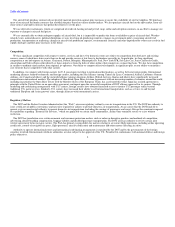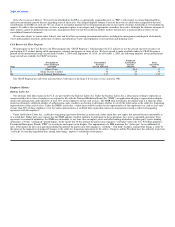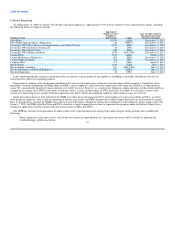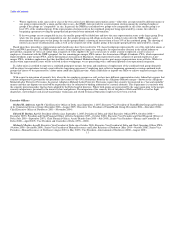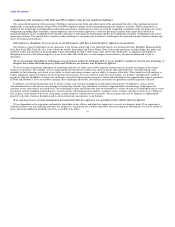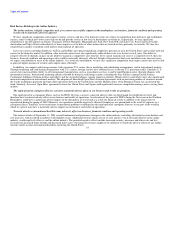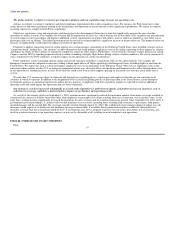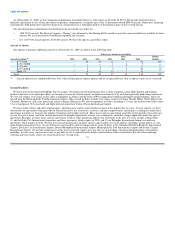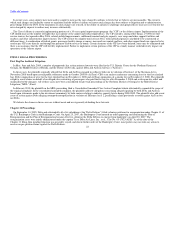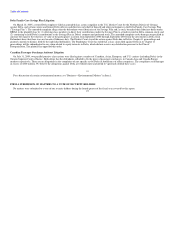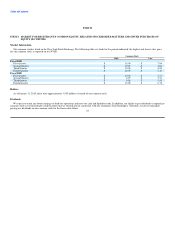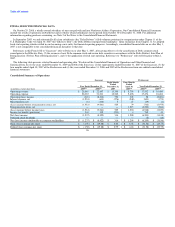Delta Airlines 2009 Annual Report Download - page 21
Download and view the complete annual report
Please find page 21 of the 2009 Delta Airlines annual report below. You can navigate through the pages in the report by either clicking on the pages listed below, or by using the keyword search tool below to find specific information within the annual report.
Table of Contents
Completion of the integration of the Delta and NWA workforces may present significant challenges.
The successful integration of the pre-merger Northwest operations into Delta and achievement of the anticipated benefits of the combination depend
significantly on integrating the pre-merger Delta and NWA employee groups and on maintaining productive employee relations. While integration of a
number of the workgroups (including pilots and aircraft maintenance technicians) has been successfully completed, completion of the integration of certain
workgroups (including flight attendants, airport employees and reservations employees) of the two pre-merger airlines will require the resolution of
potentially difficult issues, including but not limited to the process and timing for determining whether the combined post-merger workgroups wish to have
union representation. Unexpected delay, expense or other challenges to integrating the workforces could impact the expected synergies from the merger and
affect our financial performance.
Interruptions or disruptions in service at one of our hub airports could have a material adverse impact on our operations.
Our business is heavily dependent on our operations at the Atlanta airport and at our other hub airports in Cincinnati, Detroit, Memphis, Minneapolis/St.
Paul, New York-JFK, Salt Lake City, Paris-Charles de Gaulle, Amsterdam and Tokyo-Narita. Each of these hub operations includes flights that gather and
distribute traffic from markets in the geographic region surrounding the hub to other major cities and to other Delta hubs. A significant interruption or
disruption in service at the Atlanta airport or at one of our other hubs could have a serious impact on our business, financial condition and results of
operations.
We are increasingly dependent on technology in our operations, and if our technology fails or we are unable to continue to invest in new technology or
integrate the systems and technologies of Delta and Northwest, our business may be adversely affected.
We have become increasingly dependent on technology initiatives to reduce costs and to enhance customer service in order to compete in the current
business environment. For example, we have made significant investments in delta.com, check-in kiosks and related initiatives. The performance and
reliability of the technology are critical to our ability to attract and retain customers and our ability to compete effectively. These initiatives will continue to
require significant capital investments in our technology infrastructure. If we are unable to make these investments, our business and operations could be
negatively affected. In addition, we may face challenges associated with integrating complex systems and technologies that supported the separate operations
of Delta and Northwest. If we are unable to manage these challenges effectively, our business and results of operations could be negatively affected.
In addition, any internal technology error or failure or large scale external interruption in technology infrastructure we depend on, such as power,
telecommunications or the internet, may disrupt our technology network. Any individual, sustained or repeated failure of technology could impact our
customer service and result in increased costs. Our technology systems and related data may be vulnerable to a variety of sources of interruption due to events
beyond our control, including natural disasters, terrorist attacks, telecommunications failures, computer viruses, hackers and other security issues. While we
have in place, and continue to invest in, technology security initiatives and disaster recovery plans, these measures may not be adequate or implemented
properly to prevent a business disruption and its adverse financial consequences to our business.
If we experience losses of senior management personnel and other key employees, our operating results could be adversely affected.
We are dependent on the experience and industry knowledge of our officers and other key employees to execute our business plans. If we experience a
substantial turnover in our leadership and other key employees, our performance could be materially adversely impacted. Furthermore, we may be unable to
attract and retain additional qualified executives as needed in the future. 16


